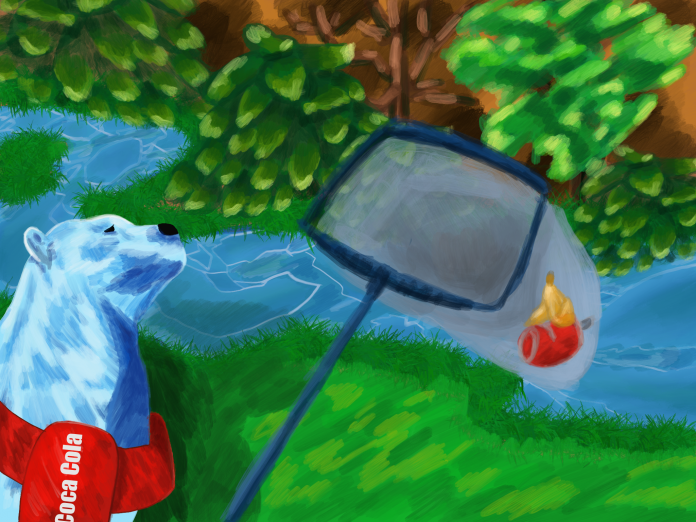Kareena Dhillon
Staff Writer
The Benioff Ocean Initiative and The Coca-Cola Foundation have partnered to reduce the amount of plastic waste in rivers, forming the Clean Currents Coalition. This coalition is a network of interdisciplinary teams working across the globe to launch pilot projects. Members are creating new technologies to capture plastic waste, and catalyzing infrastructural and societal change to combat the flow of plastic in rivers.
These projects also create behavioral change through community outreach by using data about captured waste to change behavior in people, local communities, and businesses. The Coca-Cola Foundation and Benioff family from the Benioff Ocean Initiative made matching gifts of $5.5 million each in funding to support river cleaning initiatives for the next three years.
The Benioff Ocean Initiative is based at UC Santa Barbara’s Marine Science Institute, merging science and technology to create innovative marine science solutions. The Coca-Cola Foundation is the philanthropic sector of The Coca-Cola Company, and since its inception, it has awarded more than $1 billion in grants to support sustainable community initiatives globally.
In an interview with The Bottom Line, Molly Morse, a project scientist with the Benioff Ocean Initiative, dissects issues facing oceans today. The Benioff Ocean Initiative deploys new and emerging technologies, and will “then monitor them and collect data over time to see how [they are] performing because our ultimate goal is to be able to replicate and scale up those solutions into new locations.”
“The Benioff Ocean Initiative is based at UC Santa Barbara’s Marine Science Institute, merging science and technology to create innovative marine science solutions.”
With this new funding, river cleaning initiatives will be able to integrate technology and artificial intelligence into methods of cleaning up plastic, a huge step towards addressing the “river plastic challenge.”
Morse details how trash from the United States or the European Union “gets exported to developing countries,” and how “the recycling infrastructure in those countries is not much better,” resulting in more pollution. Additionally, developing countries usually take the blame for rampant pollution, when in reality, the United States is responsible for such egregious mistakes. The deterioration of rivers has severely impacted communities and has subsequently killed biological life within those rivers.
This project is hugely important considering “dumpsites end up leaking into the environment, and rivers carry that trash into the ocean.” Preserving rivers is crucial to maintaining sustainable ecosystems. Targeting rivers can reduce the staggering statistic that 12.7 million metric tons of plastic enter the ocean annually. Considering only nine percent of all plastic ever produced has been recycled, scientists are looking for more efficient methods to combat large-scale pollution.
Not to mention, cleaning rivers is “an incredibly complicated issue,” according to Morse.
“It’s not just a matter of cleaning up the trash that’s in the rivers; it’s also learning what is the composition of that trash and where is it coming from,” Morse said. “Part of what our teams on the ground are doing is they are actually counting and measuring different types of trash.”
“Preserving rivers is crucial to maintaining sustainable ecosystems. Targeting rivers can reduce the staggering statistic that 12.7 million metric tons of plastic enter the ocean annually.”
To qualify for funding, applicants had to submit detailed proposals about how they would use the money. For example, the Marea Verde project targeting the Matías Hernández River in Panama proposed a trash entrapment system, biophysical and socio-economic research, and the integration of artificial intelligence to identify garbage.
Each project has had to adapt during the COVID-19 pandemic to reduce pollution while adhering to national guidelines. In Panama, residents were restricted to leaving the house for two hours a day, every other day. As a result, the project has developed better integrated, visually attractive engineering and operational designs to reduce plastic waste.
Additionally, the COVID-19 pandemic has “exacerbated the plastic pollution problem,” illustrating how “one pandemic is exacerbating a problem in an [already] existing problem in the environment.”
Working with the Clean Currents Coalition has allowed Morse to learn “about perceptions of people’s environmental consciousness in different communities around the world. It’s been really cool to see this bringing people together across cultures around the world.”











